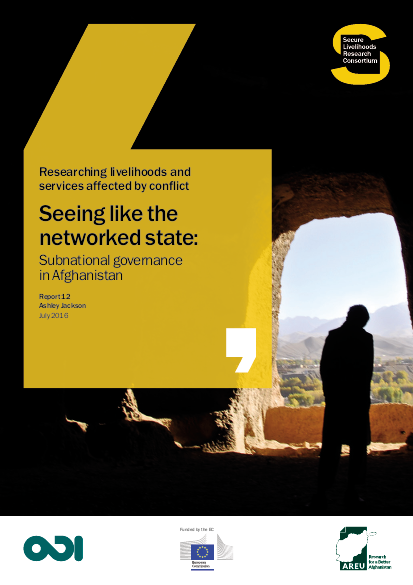
The vision for Afghanistan set out at the Bonn conference in 2001 was for strong, merit-based institutions that provided ‘good’ governance and access to basic services. Fifteen years on, the reality is that Afghanistan is a ‘failed’ state and governance rests on highly exclusionary and volatile networks of access. This paper, the third in a series and its associated briefing paper, explores regional political dynamics and governance and concludes that radically transformative, linear state-building storylines are almost always a liability on the ground in fragile states. The author challenges policymakers to think differently and to exchew the use of heavily technocratic approaches and decontextualized ‘best’ practices in favour of a more nuanced, actor-based understanding..
